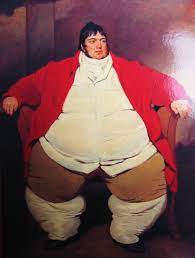21 October 2021
Fuel and Gas
More fat needed?
By Robert Kilconner
It is a general rule of classical drama that hubris is followed by nemesis; so when, a year or two ago, I was offered the opportunity to buy energy from a company run by Islington Council I passed it up. Yes, that did mean losing the opportunity of stopping the energy companies profiteering at my expense, but, on the other hand, international energy markets are complicated things and, clever though they doubtless are at Islington Town Hall, their experience in supplying gas is probably less than that of, say, an Oil Major. It all sounded likely to go bust, and of course it duly did so, but now we see conditions which are taking down companies all over the industry. Britain’s shortage of gas storage is certainly unhelpful here but the cause of the problem seems to be deeper than that. There is a jump in demand as the world economy reopens and Russia is limiting supply in order to put pressure on the West to accept its new gas pipeline. That has resulted in shortages of gas to Europe as a whole.
Bearing in mind that the new pipeline is seen as a strategic threat by the West, we seem to have got ourselves into a mess. The pipeline has been built and is simply waiting to be switched on. Presumably the money on its construction was spent on the assumption that that will ultimately happen. And so it probably will. Russia has us all in a bind and the pressures to turn up the flow will steadily grow. In the end some face-saving compromise will be reached, but the truth of the matter will be that Russia will have strengthened its position by improving a weapon which it will be possible to use all over again.
Unfortunately it isn’t just gas which has exploded on Mr Johnson’s in-tray as a distraction from his hoped-for triumph at the Glasgow conference on global warming. There are the HGV drivers too and the reality that the current pay and conditions are just not sufficient to attract Brits to take the job. Then there is fruit picking….
One way and another all these problems arise from years of trying to do things on the cheap. We decided we could economise on gas storage because gas was freely available. We economised on paying HGV drivers because there was a cheap overseas labour market. We could neglect their facilities for that reason too.
All this points to a fundamental problem with 21st century systems. Private companies and public sector institutions are all under pressure to do things as cheaply as possible. Modern technology gives them the wherewithal, components being received on the day they are used or gas being brought cheaply through endless pipelines stretching across the world. But when these systems go wrong there is no fat in them, no over-engineering to take up the slack. Of course you can build in contingencies and no doubt those using the latest technologies do so but by their nature these will only cover the “known unknowns”; the “unknown unknowns” are by their nature unpredictable.
Go and stand under a Victorian railway bridge with an engineer or an architect. “Magnificent” they will say, “but the over-engineering is very wasteful”. Yes, in a sense it is if the contingencies against which it guards are never realised. But over-engineering has an advantage. It covers the “unknown unknowns” as well as their known counterparts.
Where things are planned too finely, whether they be energy supplies or arrangements for transporting fuel or goods, they are vulnerable to the unexpected, yet the sophisticated risk assessments of the digital age make general over-engineering impracticable. Those investing in systems will base their decisions on costs, and spare fat to cover unexpected issues is likely to make the relevant tenders unacceptable.
Ideally of course we would deal with this by paying more – a strategy enforced by eagle-eyed regulators insisting on fat against contingencies but, in a world where short term advantage is all, this seems unlikely – so perhaps we should follow the example of the London squirrels. Hide rations in the ground and grow warm winter overcoats.


